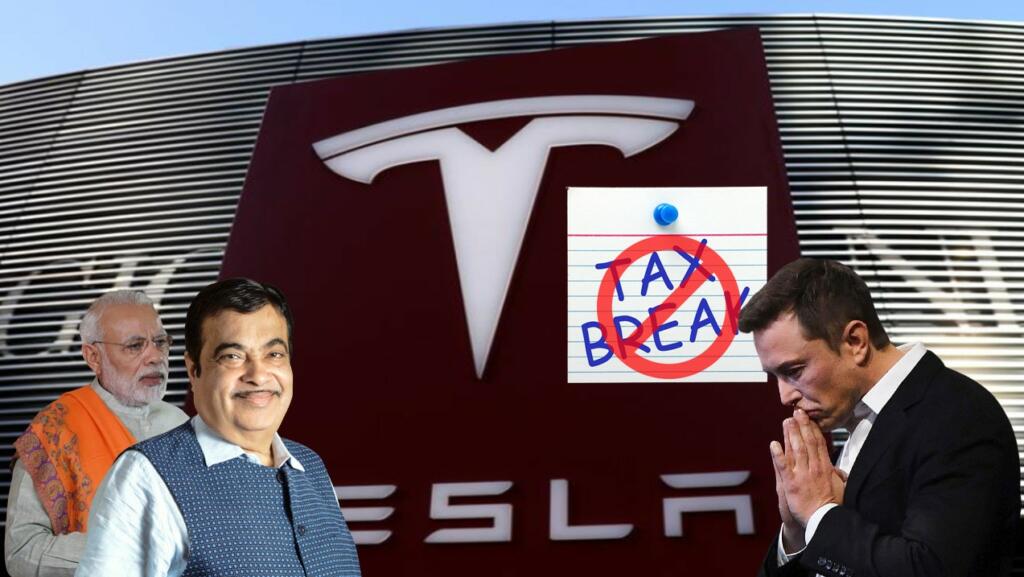In 2020, Union Minister Piyush Goyal had made some significant remarks. Regarding Amazon, he had made it clear that “investments are welcome” but “they should be within the law.”
#WATCH Minister of Commerce Piyush Goyal speaks on his reported statement '…it's not as if they (Amazon) are doing a favour to India when they invest a bn dollars.” He says, "..My statement should be seen in context. Investments are welcome but they should be within the law…" pic.twitter.com/VboRq0RYLr
— ANI (@ANI) January 17, 2020
So, India’s point is simple- we will offer good business conditions and a level playing field, but we will not bend the rules for anyone. And now, Tesla is getting to know it, as India has shot down the EV maker’s requests for a tax holiday.
Read more: Tesla is not getting any tax break in India. And that’s good
India rejects Tesla’s tax breaks request
India has turned down Elon Musk-led Tesla’s demand for tax breaks to import electric cars. India has made it clear that rules are already in place to bring in partially-build vehicles and get them assembled in India.
Vivek Johri, chairman of the Central Board of Indirect Taxes and Customs, explained, “We looked at whether the duties need to be re-jigged, but some domestic production is happening and some investments have come in with the current tariff structure.”
Johri added, “So, it is clear that this is not a hindrance.”
Elon Musk had earlier said that India’s high duties make Tesla cars “unaffordable”, and the local rules prohibited him from testing the waters in the Indian market with imports.
Read more: ‘Don’t buy their internet plans,’ India pulls the plug on Elon Musk’s Starlink
However, Johri said, “Some investment has already come in with the current tariff structure. So why can’t others also come in?” The top official added, “There are other foreign brands also which are being sold in the country with the current tariff structure.”
In fact, Mercedes-Benz is already looking to roll out a locally assembled EQS, which will be the electric version of the S-Class sedan. So, if Mercedes-Benz can assemble cars in India, why can’t Tesla follow suit?
Make in India if you want to sell in India
Tesla had been urging India to slash import taxes on EVs before it enters the Indian market. Presently, the country levies an import duty of 60% on EVs that cost $40,000 or less, and a 100% import duty on EVs priced above $40,000. So, in any case, Tesla EVs produced elsewhere and imported into India wouldn’t be competitive enough for the Indian market.
But allowing such exemptions on import duties would have hampered investments in India’s domestic EV manufacturing sector, which is presently booming with local automakers like Mahindra and Tata pumping major investments in the EV sector.
Now, it is clear India won’t let Tesla produce vehicles elsewhere and sell them in India, without making any investments in the country’s EV manufacturing sector. Tesla will at least have to open an assembling plant in India if it wants to effectively access the humongous Indian market.
Johri even said that Tesla should follow the lead of Indian companies like Mahindra & Mahindra Ltd. and Tata Motors, who are building local capacity for EVs.
‘Don’t sell China-made EVs in India’
Moreover, Tesla’s China base is also becoming a sticking point for India. Last year, half of Tesla’s global deliveries came from China. The EV maker moved its export hub from Fermont to Shanghai.
Ultimately, Tesla wants to produce 6,00,000 electric cars in China annually. However, Transport Minister Nitin Gadkari had said, “I have told Tesla that don’t sell electric cars in India which your company has manufactured in China. You should manufacture electric cars in India, and also export cars from India.”
India wants to lead the global EV industry. It wants to emerge as a big exporter in the key industry of the near future. It simply won’t end up in a situation where Tesla is making lakh of EVs in China but selling foreign-made cars to India. The government has set a clear condition for Tesla– make in India if you want to sell in India.
